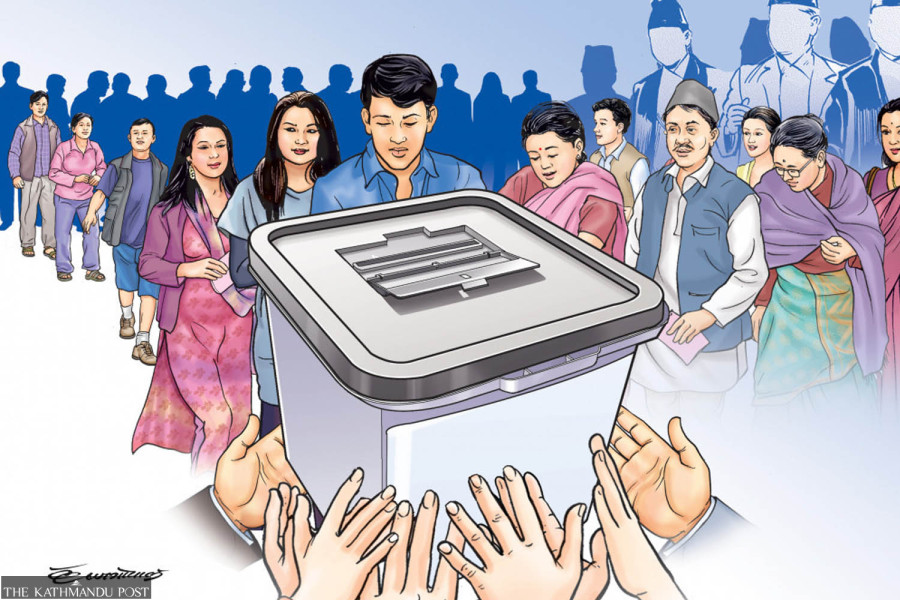Editorial
Why ‘transfer’ votes?
By voting a certain way people can make their dislike for unnatural coalitions known.
The fear among members of the ruling as well as the main opposition alliance that traditional votes for one party may not naturally translate into votes for another is a legitimate one. This time, fighting as an alliance are five ruling parties: the Nepali Congress, the CPN (Maoist Centre), the CPN (Unified Socialist), the Loktantrik Samajbadi Party, and the Rastriya Janamorcha. Opposite them is an alliance of the CPN-UML, the Janata Samajbadi Party, the Rastriya Prajatantra Party (RPP) and the RPP-Nepal. While the ruling alliance is jointly fighting the federal and provincial elections all across the country, the UML-led alliance is doing so only in select constituencies. The concern over transfer of votes is genuine as the alliances are marriages of convenience for the constituent parties. In fact, on many important issues, these parties hold diametrically opposite views: For instance, while the other four parties in the ruling alliance are advocates of federalism, the Janamorcha is a vehement opponent. Likewise, while the first two parties in the UML-led alliance are supporters of the post-2006 changes, the two RPP’s would like to take the country back to the old unitary set-up under a hereditary Hindu monarch.
In the absence of any convincing reason to switch their vote, prospective voters can be forgiven for their confusion. Many of them are trying to wrap their heads around their old parties of choice abandoning their core beliefs just to secure some seats. If there are no ideological differences between political parties, why at all have a multi-party system? The older voters have a related dilemma: How does an old Congress voter who has always stamped on the ‘tree’ symbol now get himself to stamp on the ‘hammer and sickle’? Just because the political leaders decided to forge an alliance to lock in some seats, why should voters be expected to abandon their ideological beliefs as well? This is why many prospective voters say that rather than giving their votes to someone from a political party of a different persuasion, they would rather not vote.
The public’s skepticism of the alliances only grows when they see that candidates from the traditionally marginalised communities like women, Dalits and Janajatis have been grossly underrepresented among election candidates. Why do the voters from these communities have to keep voting for the same-old male leaders of select castes? Shouldn’t a functional democracy provide them with more meaningful options?
This is not an argument urging people to forego their sovereign right to cast their ballots. That would be a dangerous trend. A democracy can only function with active involvement of its citizens, and periodic voting is one of the best means to ensure that. Also, the voters always have a choice, even if their choices are limited. By voting a certain way, they can, for instance, make their dislike for unnatural coalitions known. The same with their preference for, say, younger over older candidates. If the parties see that the pre-poll ‘seat distribution’ is electorally harmful, they will have to heed the message. To ask people to vote against their conscience is criminal. Those doing the asking should not be allowed to get away with it.




 22.6°C Kathmandu
22.6°C Kathmandu














